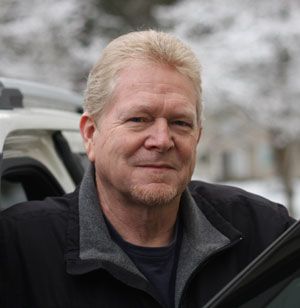Readers relay thoughts and questions
Reader input regularly “steers” this column — a condition exemplified by the following responses.
B.M. reported some good luck with truckers by writing, “My wife and I recently completed a 4,000 mile road trip to Illinois and back home. All except maybe 100 miles were on the interstates. We drove through Montana, Wyoming, Nebraska, Iowa, Illinois, Wisconsin, Minnesota, South Dakota, and back to Bayview, Idaho. Only one time did we see a semi passing another semi on an upgrade and possibly holding up traffic for a few minutes. All in all, it was a great trip and all the semis were very easy to drive with.”
I’m glad B.M.’s experiences among truckers were positive during their trip. I’ve often stated that big rig operators are among the most predictable, astute drivers I encounter. Accidents that happen with smaller vehicles among them are predominantly the fault of the smaller vehicle.
The various states that B.M. and his wife traversed are a bit more open than some of the routes where I’ve experienced slowdowns from “trucks passing trucks.” I too notice little conflict in the states he listed. The “rolling roadblocks” I have encountered tend to be in Georgia, Texas, Louisiana, Mississippi, Tennessee, Utah, Oregon and a few others.
Also, there is no difficulty when three or more lanes are available for vehicles going the same direction. It’s generally in areas where there are lots of trucks and only two lanes in each direction that the problem tends to arise. At those locations, in some instances, the timing of a truck passing a truck or other slow vehicle will unavoidably conflict with other traffic if that trucker is to hold his/her difficult-to-regain momentum.
Congratulations to B.M. and his wife for completing a successful, lengthy road trip. I consider the freedom of road travel in individual vehicles to be a privilege that may not be available forever, so I do it as much as I can. Driving takes longer and costs more (for two) than air travel, but I can bring liquids!
I’ve said that worthy messages bear repeating, and based on the correspondence I get on the topic, proper use of the left lane is a worthy message. A plea from reader L.W. is typical, expressing, “You’ve probably already addressed this, but conditions on our freeways show more needs to be said: the left lane in the freeway is for passing, not sitting in! Could you enlighten your readers?”
And L.W. goes on to opine, “I’ve thought about it a lot, and concluded that there are two types of discourtesy that contribute to the problem. The first is simple selfishness and indifference to other drivers who are traveling faster. That’s hard to solve. But I think often the unwillingness of drivers in the left lane to move right when possible is the result of a fear that they will later be treated discourteously if they do — that they won’t be allowed to easily merge left again when they need to, in order to get around a slower vehicle.”
Continuous use of the left-most lane without valid cause is one of the most-covered driver errors I’ve written about over the past several years. I don’t blame L.W. for missing those entries, but they have been numerous.
I write of it often because I marvel that drivers can’t grasp the simple concept involved: essentially, stay right except to pass!
I have regularly heard drivers justify their habit of stubbornly staying in the left lane because, “They are going the speed limit.” That justification is legally inadequate. In Washington (and every other state I’ve checked), use of the far left lane is reserved for: 1) Overtaking other vehicles or travelling faster than traffic flow. 2) Positioning vehicle for an impending left turn. 3) Moving left to allow a merge from the right or to avoid an obstacle. No other excuses hold legal merit!
Whatever their rationalizations may be for operating in the left lane, drivers are in violation of the law if those reasons don’t include one from the list above. Fortunately, the Washington State Patrol does enforce this law; maybe just not enough!
Readers may contact Bill Love via e-mail at precisiondriving@spokesman.com.
